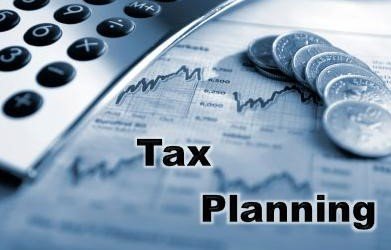The 5-Second Trick For Baron Accounting
The 5-Second Trick For Baron Accounting
Blog Article
Not known Incorrect Statements About Baron Accounting
Table of ContentsThe Buzz on Baron AccountingAll About Baron AccountingThe Basic Principles Of Baron Accounting The Baron Accounting Ideas
One easy way of guaranteeing that unexpected consequences do not occur would be to reduce all small tariff rates by the very same percentage whenever such prices need to be changed. Second, nominal tariff decreases are likely to require temporary revenue loss. This loss can be stayed clear of via a precise technique in which separate offsetting actions are thought about in series: initial minimizing the range of tariff exceptions in the existing system, after that making up for the tariff decreases on excisable imports by a compatible increase in their excise prices, and lastly adjusting the rate of the basic usage tax obligation (such as the VAT) to satisfy staying earnings requirements.This can happen when any kind of earnings spared from taxes in the host country is strained by the financier's home country. ATO Online Tax Filing. Tax obligation motivations can be justified if they attend to some type of market failing, most notably those including externalities (economic consequences beyond the particular recipient of the tax obligation reward). For instance, rewards targeted to advertise high-technology sectors that assure to confer substantial positive externalities on the rest of the economy are typically legitimate.
(https://www.edocr.com/v/dnrevqwd/danieltate4113/baron-accounting)Not all incentives are similarly fit for accomplishing such objectives and some are less economical than others. The most prevalent forms of motivations located in developing nations have a tendency to be the least admirable. Of all the forms of tax obligation incentives, tax holidays (exceptions from paying tax obligation for a particular time period) are one of the most popular amongst developing countries.
Initially, by exempting profits irrespective of their quantity, tax obligation holidays tend to benefit a financier that expects high profits and would have made the investment even if this reward were not provided. Second, tax holidays supply a solid incentive for tax evasion, as exhausted enterprises can enter right into financial relationships with exempt ones to shift their earnings through transfer prices (as an example, overpaying for goods from the other business and receiving a kickback).
See This Report on Baron Accounting
Fourth, time-bound tax holidays tend to draw in short-run tasks, which are normally not so useful to the economic situation as longer-term ones. Fifth, the profits expense of the tax holiday to the budget plan is hardly ever transparent, unless enterprises delighting in the vacation are required to file tax return. In this situation, the government must spend resources on tax obligation management that yields no revenue and the business sheds the benefit of not having to handle tax authorities.
They are better targeted than tax vacations for promoting specific types of investment and their revenue expense is much more clear and much easier to manage. A straightforward and reliable method of carrying out a tax credit history system is to identify the quantity of the debt to a certified enterprise and to "down payment" this amount into a special tax obligation account in the kind of a bookkeeping access.

Providing tax incentives in the form of sped up devaluation has the least of the drawbacks related to tax obligation holidays and all of the virtues of tax credit ratings and investment allowancesand gets rid of the latter's weakness too. Given that merely speeding up the devaluation of a possession does not raise the devaluation of the property beyond its initial cost, little distortion for temporary properties is produced.
The 4-Minute Rule for Baron Accounting
Indirect tax obligation motivations, such as excusing raw products and funding products from the Barrel, are vulnerable to abuse and are of uncertain energy. The problem with this exception exists, of training course, in making certain that the excused acquisitions will certainly in reality be used as intended by the motivation.
The system by which tax motivations can be activated can be either automated or discretionary. An automated triggering system allows the investment to get visit the website the rewards automatically once it pleases clearly defined unbiased certifying criteria, such as a minimal amount of financial investment in specific markets of the economy. The appropriate authorities have merely to make sure that the qualifying requirements are met.

How Baron Accounting can Save You Time, Stress, and Money.
A collective effort to remove these deficiencies is therefore of miraculous seriousness. Tax obligation competitors is one more policy challenge in a globe of liberalized funding activity. The effectiveness of tax incentivesin the absence of various other essential fundamentalsis very suspicious. A tax system that is filled with such motivations will unavoidably supply fertile grounds for rent-seeking tasks.

Report this page